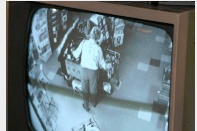 Over the past five years or so, social media platforms have exploded. Sites like Facebook, Twitter, or Instagram are essentially a one stop shop for all your news, entertainment and whatever your Aunt Dolly is doing today… Like most Americans, I visit these websites frequently throughout the day (although, I am weaning myself off this addiction slowly, but surely). Businesses have also been quick to jump on the bandwagon and have found that direct to consumer marketing, especially the free kind of marketing, can really help a small business soar. With so many people, places and things interconnected, you can see how the Loss Prevention Industry uses these platforms to not only aid in investigations, but to help track down fencing operations, retail ORC groups and even dishonest employees.
Over the past five years or so, social media platforms have exploded. Sites like Facebook, Twitter, or Instagram are essentially a one stop shop for all your news, entertainment and whatever your Aunt Dolly is doing today… Like most Americans, I visit these websites frequently throughout the day (although, I am weaning myself off this addiction slowly, but surely). Businesses have also been quick to jump on the bandwagon and have found that direct to consumer marketing, especially the free kind of marketing, can really help a small business soar. With so many people, places and things interconnected, you can see how the Loss Prevention Industry uses these platforms to not only aid in investigations, but to help track down fencing operations, retail ORC groups and even dishonest employees.
About a month or so ago, I was scrolling through a Facebook “online garage sale group” in my area. A few scrolls down, I noticed a guy was selling a store merchandise credit from one of my stores. I looked up the name in our internal system for any hits and sure enough, it was an employee at one of my stores. A little investigating showed that he had conducted a return of a high end baseball bat, but according to our sales records, the store he worked in had not sold that particular sku. Furthermore, inventory data showed that store to be missing one unit. A little more leg work, and I was able to determine that the employee had altered the price on a high end bat, purchasing it for only a few dollars. He returned the bat for full value at another store and posted the credit on Facebook to sell. From our research, he had done this about a dozen or so times with various merchandise. I was able to make a pretty substantial case from a lead generated from social media.
Take things a little further. Most of you reading this are small business owners. Chances are, you don’t have some large Loss Prevention department; heck, your LP department might be the 16 cameras you have set up in your store. There’s absolutely nothing wrong with that; in fact, without the hassle of a large company’s legal department, you have more freedom with those CCTV images of a thief than I do. Most police departments and sheriff’s offices around the country have also been accepting of a social media presence. From the community outreach and the ability to hear concerns directly from citizens, it’s a great way for law enforcement to take a big step into the future. This also gives those agencies the ability to share BOLOs with an enormous amount of people.
Not two weeks ago, a local sheriff’s office shared some CCTV images from a clothing boutique store that showed a female shoplifter, who made away with several hundred dollars in clothing. The boutique had a very good camera system and shared those images from their Facebook page to the Sheriff’s Office page, who in turn shared it with their followers. Literally, within 30 minutes, the comment section was full of tips, eventually leading to the shoplifter’s identity. Heck, some people even began tagging this woman in her own wanted poster. Classic. Without this platform, this crime may have gone unsolved, and that business would have taken a hit out of their own pockets.
While social media can boost sales and drive traffic into your store, it can only be a great tool to reduce shrink. The ability to quickly search through your employee’s friends, or search in wanted ads for particular items and the ability to share CCTV images quickly and with great success, makes social media almost a necessity of today’s small business’s plan to combat shrink and increase profitability.

Speak Your Mind
You must be logged in to post a comment.